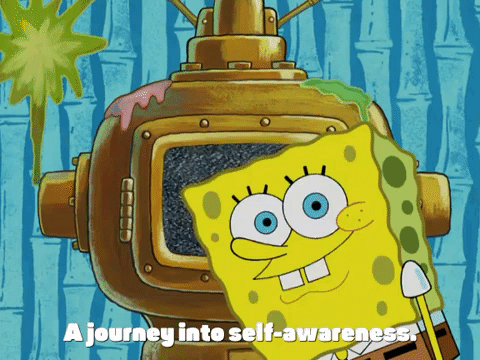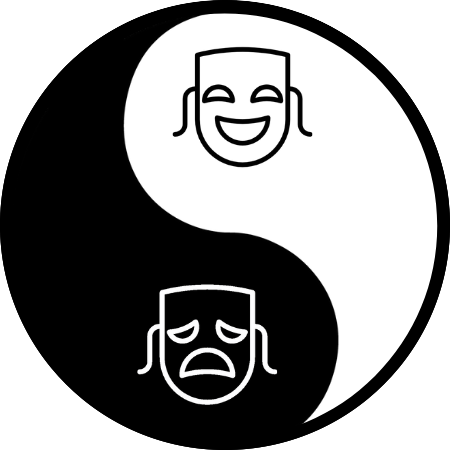The Self-Aware Actor
"I think self-awareness is probably the most important thing towards being a champion." ~ Billie Jean King
Isn't it kinda wild how we can know everything about the characters we play — their objectives, super-objective, desires, fears, quirks — and so little about ourselves? We can (and do) fill notebooks upon notebooks with profound insights on Lady Macbeth and Blanche DuBois, but if asked to fill a single A4 page with observations on ourselves, we'd be like 🤷.
According to the Oxford English Dictionary, self-awareness is the "Conscious knowledge of one's own character, thoughts, emotions".[1] Crucially, though, is the conscious knowledge of how our actions, thoughts, and feelings align with the self we intend to be.
Now, if you aren't on the woo-woo train in the same way we are, you may be tempted to click away at this point. Fair. But what if we told you that self-awareness is the software actor peak performance runs on?
👉🏼 Monthly subscription
👉🏼 Yearly subscription (17% discount)
Why to
First, it's critical to distinguish self-awareness from self-focus. Self-focus, in many ways the opposite of self-awareness, is an excessive preoccupation with our thoughts, feelings, and physical sensations. Where self-awareness provides the "just right" dose of insight to facilitate peak performance, self-focus sees us so consumed by our internal states that acting in alignment with our values and long-term goals becomes near impossible. Self-awareness is the precursor to self-acceptance and self-improvement. Self-focus precedes self-loathing and self-sabotage.
One of the most important things we champion here at the Dojo is specifying a personal definition of success. Curating this definition for ourselves can prove nothing short of game-changing, allowing us to step out of the matrix and navigate life with our own compass. Of course, such defining requires a measure of self-awareness, hence its value.
On value, self-awareness is also increasingly rare. Although most people believe themselves to be self-aware, researchers estimate only 10-15% of people actually are.[2] For these reasons and more, we can consider self-awareness a superpower in the modern age.
How to
Assuming self-awareness sounds like a superpower we'd benefit from cultivating, how do we go about doing that? Fortunately, there's a range of options, meaning we can double down on those that most vibe, or mix-'n-match as we desire. This list is by no means exhaustive, but a couple of suggestions to get the juices flowing include:
- Meditating. Guided meditations can be great here.
- Silent solo time in nature.
- Journaling. Either brain-dump style or using targeted prompts (e.g., the Proust Questionnaire).
- "Personality tests". Technically — scientifically — personality tests aren't super valid tools. Pragmatically; however, they can have value, so long as we take them with a generous pinch of salt. The Big Five is considered the best of the lot, but the VIA Character Strengths, Enneagram, and Myers & Briggs can all offer data. "Data" being the keyword. Treat as data, not decrees.
- Talk therapy.
- Asking for advice / feedback from those you trust and respect.

Whether you cultivate self-awareness exclusively for the peak performance gains or for the performance / woo-woo one-two punch, know that it's an investment worth making. Either way, you'll discover self-awareness really is a superpower for the modern age.
Thoughts / feedback / challenges? We'd genuinely love to hear.
Need some 1-On-1 attention? Book your coaching session today.
Citations:
[1] https://www.oed.com/dictionary/self-awareness_n?tab=meaning_and_use#23779571
[2] https://hbr.org/2018/01/what-self-awareness-really-is-and-how-to-cultivate-it
